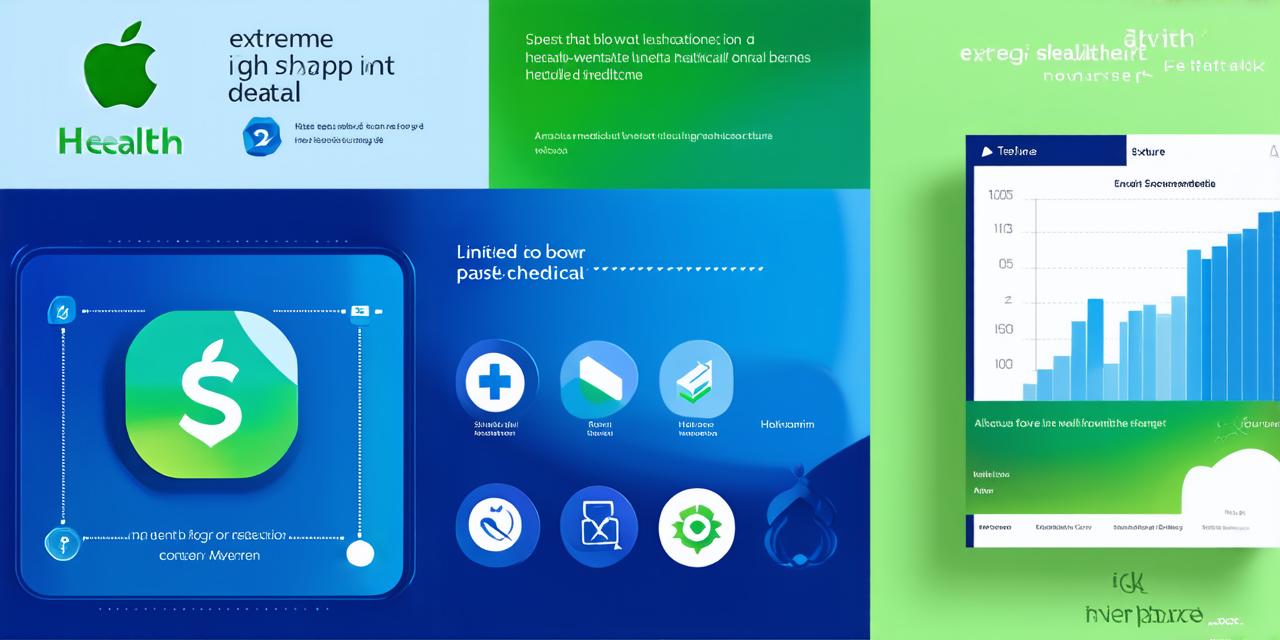
If you are an ios developer, you may be wondering what iOS means in health terms.
The answer is that iOS (short for iPhone Operating System) is the mobile operating system used by Apple devices such as the iPhone and iPad. While it may seem like a straightforward concept, there are many ways in which iOS intersects with healthcare and can have a significant impact on patient care.
One of the most important ways that iOS intersects with health is through the use of mobile apps.
There are thousands of healthcare-related apps available for iOS devices, ranging from fitness trackers to telemedicine platforms. These apps can help patients monitor their health and wellness, connect with healthcare providers remotely, and access medical information on-the-go.
For example, a patient who is recovering from a serious illness may use an app to monitor their vital signs such as heart rate and blood pressure, track their progress, and communicate with their healthcare provider via video call.
A fitness enthusiast may use an app to track their workouts and dietary habits, set goals, and share their progress with friends and family.
In addition to apps, iOS also provides developers with a variety of tools and frameworks for building health-related software.
These include HealthKit, which allows developers to access and manage patient data such as heart rate and blood sugar levels, and Core ML, which enables the creation of machine learning models for use in healthcare applications.
Case study: A telemedicine platform for remote care
One example of how iOS is being used in healthcare is through a telemedicine platform called “Medici.” Medici was developed by an ios developer named Michael Chuang, who saw the need for more convenient and accessible healthcare services. The platform allows patients to connect with their healthcare providers remotely via video call, chat, or text message, and can be used to schedule appointments, share medical records, and even prescribe medications.
Medici has been particularly successful in rural areas where access to healthcare is limited. In one case, a patient who lived over an hour away from the nearest hospital was able to receive remote care through Medici, reducing their risk of complications and improving their overall health.
Expert opinion: The importance of mobile health apps
According to Dr. John Wennberg, a professor at Dartmouth College and a leading expert in healthcare innovation, mobile health apps have the potential to revolutionize patient care.
“Mobile health apps are already being used to improve patient outcomes, reduce costs, and increase access to care,” he says. “As more patients become comfortable using these apps, we can expect to see even more benefits in the future.”
Dr. Wennberg goes on to say that mobile health apps can be particularly useful for patients with chronic conditions such as diabetes or heart disease, who need to monitor their health closely and make lifestyle changes to manage their condition effectively.
Real-life example: A patient who uses a fitness app to manage diabetes
A patient with diabetes named Sarah uses a fitness app called “MyFitnessPal” to monitor her blood sugar levels, track her dietary habits, and log her exercise routine. She was able to use the app to set goals for herself, such as losing weight and improving her blood sugar control, and received real-time feedback and support from the app’s community of users.
Sarah was particularly impressed with MyFitnessPal’s integration with her healthcare provider’s electronic health record (EHR). She was able to share her progress with her doctor, who could see her blood sugar levels and make adjustments to her treatment plan as needed.
FAQs
1. What is the difference between HealthKit and Core ML?
HealthKit is a framework for accessing and managing patient data on iOS devices, while Core ML is a machine learning platform that can be used to create models for use in healthcare applications.
2. Can iOS apps be used to diagnose diseases?
No, iOS apps cannot diagnose diseases. However, they can be used to collect data and monitor symptoms, which can help patients receive a more accurate diagnosis from their healthcare provider.
3. How can telemedicine platforms like Medici improve patient care?
Telemedicine platforms like Medici can improve patient care by providing remote access to healthcare services, reducing wait times, and allowing patients to connect with their healthcare providers more easily.
4. What are some examples of mobile health apps that can be used to manage chronic conditions?
newsparagraph>Some examples include MyFitnessPal for managing weight and blood sugar levels, Headspace for stress management, and Medici for remote care.
